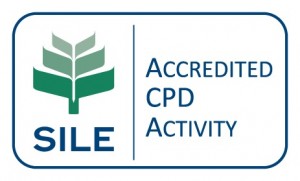Executive Programme 2026
International Structured Finance and Derivatives
Speaker’s Profile

Simo M. Dafir
Managing Director at Volguard
Simo M. Dafir is a Managing Director at Volguard, a financial consulting firm specializing in Capital Markets, Wealth Management and Derivatives. He has over fourteen years of experience during which he has held senior positions in a number of major international banks in Hong Kong and Singapore.
He was the Regional Head of Commodity Structuring at Standard Chartered Bank, Head of Commodity Exotics and Hybrids at Merrill Lynch Asia, and Trader of Credit Derivatives at Credit Suisse.
Mr. Dafir is author of “Fuel Hedging and Risk Management”, published by Wiley Finance. He has been a visiting professor at leading universities in Europe and Asia and an expert witness for financial markets litigations.
Mr. Dafir started his career in Aerospace and Telecom at the European Space Agency and Alcatel.
He holds an MBA from INSEAD, a Post Graduate Research Degree from the National Polytechnic Institute of Toulouse, an MSc in Automation from ENSEEIHT and a Bachelor’s degree in Mathematics.
The Covid-19 crisis came at the end of more than two decades of significant transformation of financial markets with main catalysts such as structured finance innovation and financial regulations. The 2020 stock market’s roller coaster exposed the financial system’s fragility and the pressing need for legal professionals with solid understanding of Structured Finance and Derivatives which form an important building block in risk management for corporate, investors, arbitrageurs and project financiers.
On 20 April 2020, the West Texas Intermediate (WTI) crude oil price dropped to negative levels for the first time in history (-$37 per barrel). This challenged the underlying assumptions of many legal and risk management frameworks that were designed with a poor understanding of the futures markets and financial derivatives in general.
Few months later, the GameStop short squeeze in January 2021 sparked the interest of the general public with the media’s narrative only focusing on the tip of the iceberg. Regulators, on the other hand, were more concerned about market abuses including price manipulation, collusion and other market manipulation strategies such as pump and dump, market ramping or cornering.
As structured finance and derivatives have become a crucial aspect of many financial transactions, it has become increasingly difficult to understand or investigate the origin and the impact of these debacles. It is therefore paramount to train new generations of lawyers capable of keeping up with the complexity of this field. Big financial institutions usually have in-house expertise and all the various types of standard documentation required to carry out standard deals and only resort to external private lawyers for high-level and complex transactions. However, it is not possible to gain the knowledge of complex structures without learning the basics. Unfortunately, the easy and basic transactions are not likely to cross the paths of the junior derivatives lawyer because they are all done in-house.
Many financial markets transactions require the use of instruments including Exchange traded and OTC derivatives such as, commodity, currency or interest rates swaps, forwards, futures and options. Credit Default Swaps and other credit derivatives have also been extensively applied for credit and counterparty risk hedging, securitization and the synthetic transfer of risk exposures.
This program will allow the attendees to examine various practices related to structuring, documentation and execution of structured finance and derivatives transactions. It will provide the participants with the tools to analyze and critically assess financial products. Practical case studies and examples will be utilized to illustrate the good practices as well as potential abuses of these financial instruments.

Dates:
2 & 5 March 2026 – 5.00 pm to 8.30 pm
+ 3 March 2026 – 5.00 pm to 8.00 pm
Duration:
Total 10 hours
Two 3.5 hour-classes + one 3 hour-class
Location:
Assas campus, Singapore
Online attendance is also available
Programme Overview
DAY 1 Monday 2nd March 2026
(1.5 hrs)
- The role of Financial Markets
- The structure of Financial Markets Hedging, Speculation and Arbitrage
- Financial Derivatives Building Blocks
- Forwards & Futures Markets: Uses and Terminology
(1.75 hrs)
- Commodity Exchanges and clearing Mechanisms
- Options Markets: Put, Call and Exotic Options
- Swaps: Commodity, IR, FX and Equity Linked Swaps
DAY 2 Tuesday 3rd March 2026
(1.5 hrs)
- Wanted and unwanted risks
- Systemic, specific and idiosyncratic risks
- Market Risk, Counterparty Risk, Legal Risk, Liquidity Risk, Operational Risk
- Market Misconducts: Naked Short Selling, Price Manipulation, Pump & Dump, Painting the tape, wash trades, Mis-representation.
(1.25 hrs)
- Credit Risk and Credit Derivatives
- Credit Default swaps: Market and Legal considerations
- Documentation and ISDA negotiation
- Netting and Credit Support Annex
- Examples of Term sheets and Confirmation documents:
– Structured Linked Notes
– Commodity Hedging transactions
DAY 3 Thursday 5th March 2026
(1.5 hrs)
Analysis of the documentation from a risk perspective: Rating Agencies, CDOs and First-To-Defaults Case Study 2: La Barre De Fer:
- Copper Mine Financing
- Risks Analysis
- Risk Mitigations
(1.75 hrs)
- Commodity Derivatives Strategies: Swaps, Three Ways
- Risk Sharing: Securitization, SPV, Collateral & Ring Fencing
- Counterparty Risk: Credit default Swap & Synthetic TRS.
Fees*:
- Early Bird Price (registration by 16 February 2026):
- SGD 1,250 or EUR 830 Full Programme.
- SGD 450 or EUR 300 Per Module.
- Regular Price (registration after 16 February 2026):
- SGD 1,350 or EUR 960 Full Programme.
- SGD 490 or EUR 350 Per Module.
*Enrolled LL.M. students at Paris Panthéon-Assas University may attend the programme free of charge.
CPD Accreditation:

CPD points: 10 Public CPD Points
(TBC – 3.5 Public CPD Points each for Day 1 and 3, 3 Public CPD Points for Day 2)
Practice area: Banking and Finance
Training category: General
Participants who wish to obtain CPD Points are reminded that they must comply strictly with the Attendance Policy set out in the CPD Guidelines. For participants attending the face-to-face activity, this includes signing in on arrival and signing out at the conclusion of each day of the activity in the manner required by the organiser, and not being absent from each day of the activity for more than 15 minutes. For those participating via the webinar, this includes logging in at the start of the webinar and logging out at the conclusion of the webinar on each day of the activity in the manner required by the organiser, and not being away from any part of the webinar for more than 15 minutes on each day of the activity. Participants may obtain Public CPD Points for each day of the event on which they comply strictly with the Attendance Policy. Participants who do not comply with the Attendance Policy on any particular day of the activity will not be able to obtain CPD Points for that day of the activity. Please refer to www.sileCPDcentre.sg for more information.

